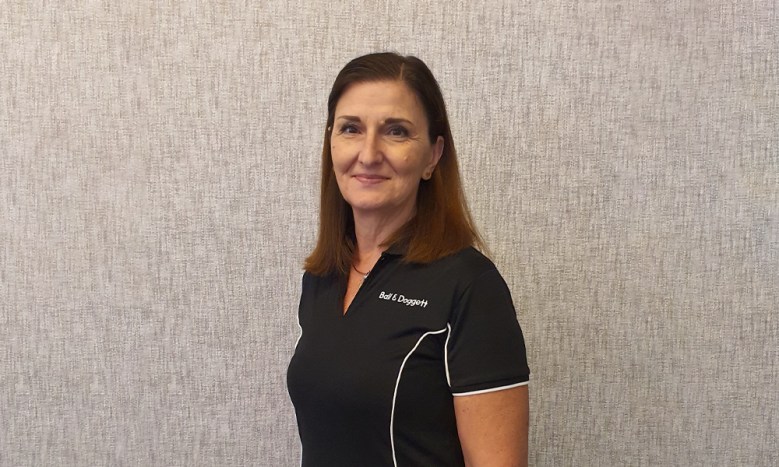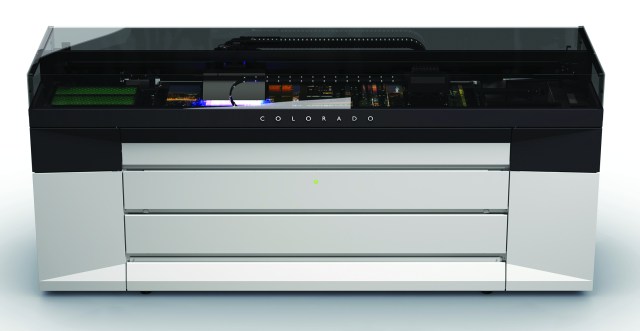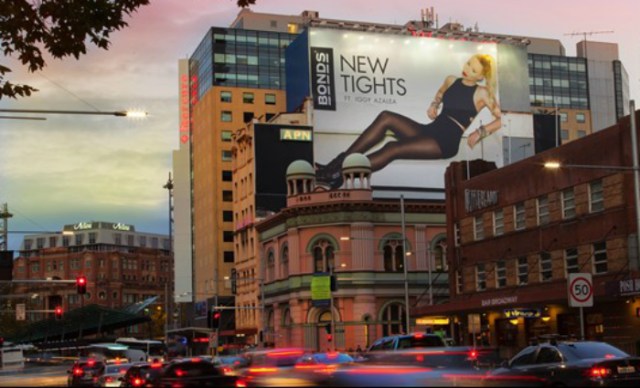
Committed to growth and innovation, Ball & Doggett offers equipment that empowers its customers to expand their in-house print manufacturing and finishing capabilities.
Wide format printing has evolved far beyond traditional signage applications. Thanks to rapid technological innovations, wide format printers now deliver a much broader range of services, moving away from commodity printing toward high-value, specialised solutions.
According to Tatjana Ferguson, national manager – large format equipment at Ball & Doggett, these advancements have expanded into non-traditional areas such as interior décor, architectural applications, education, manufacturing, and technical printing.
One notable development is Direct-to- Object (DTO) printing, where flatbed UV printers apply high-quality images and text directly onto three-dimensional objects, materials, and substrates. Using UV-cured inks that dry instantly, this process ensures durability, a premium finish, and the ability to personalise items such as phone cases, trophies, ceramic tiles, golf balls, bottles, tabletops, and even wheel rims.
According to Ferguson, another major growth area is digital textile printing, particularly for fashion, sportswear, and home décor. This sector continues to drive demand for wide format printers as businesses seek faster, more flexible production methods
“Trends in Direct-to-Garment (DTG) printing include growing demand for personalisation, eco-friendly water-based inks for cotton and blends, and the rise of on-demand printing to reduce waste. Sublimation trends involve increased use for sportswear, gifts, and promotional products on polyester, with advances in productivity and automation,” Ferguson said.
“The demand for sustainable and versatile natural fibre textile printing is being met by Kornit Digital’s direct digital printing on fabrics and Mimaki’s waterless, pigment transfer system, TRAPIS. These methods allow for high-quality printing on a wider range of materials, including cotton and silk, without the significant pre-treatment, water usage, and fabric limitations of traditional sublimation, which is restricted to polyester.”
The increase in on-demand and customised printing has further accelerated interest in Direct-to-Film (DTF) technologies.
“With low equipment investment, easy setup, and broad versatility, DTF offers a cost-effective way to produce high-quality, personalised prints across a wide variety of surfaces – enabling businesses to serve niche markets and smaller production runs more efficiently,” Ferguson said.
Future-ready solutions
In response to these shifting industry demands, Ball & Doggett’s extensive range provides customers with equipment designed to expand their in-house print manufacturing and finishing capabilities.
The Ball & Doggett range features:
- Advanced wide-format cutting tables and finishing technology – delivering automated production of complex shapes and sizes with minimal waste, greater speed, and consistent quality.
- Compact, user-friendly equipment for automated carton cutting – ideal for short-run packaging. These systems can cut, crease, and perforate directly from design files, streamlining production for packaging converters, e-commerce brands, and commercial printers. As an accessible entry point into automation, they save time, reduce waste, and unlock new revenue opportunities through fast, flexible packaging solutions.
Sustainability a top priority
Looking ahead, Ferguson believes the wide format printing sector is positioned for sustained growth.
“Ongoing advances in print head technology, ink formulations, digital systems, and automation will further improve efficiency while opening new application possibilities,” she said.
Sustainability will also remain a defining priority, driving the development of eco-friendly substrates, low-impact inks, and energy-efficient processes.
“At Ball & Doggett, sustainability is at the core of how we operate,” she added.
Recent sustainability initiatives by Ball & Doggett include ecocycle by Ball & Doggett, Ecobanner, and Ecoporium. Ecocycle is a state-of-the-art recycling process that ensures polypropylene products are transformed into new media. Ecobanner is the first and only Australian-made, PVC-free flexible banner fabric offering a 100 per cent closed-loop recycling solution. Ecoporium is a dedicated sustainability hub, providing customers and the market with insights, education, and resources to inform smarter commercial decisions and support better environmental outcomes.
Unlocking efficiency and flexibility
According to Ferguson, to future-proof their businesses, print providers must embrace new equipment innovations, adopt AI and automation tools, expand sustainable product offerings, and maximise production efficiencies.
“Remaining competitive requires ongoing research and a commitment to staying informed about emerging trends and innovations,” Ferguson said.
“Building strong partnerships with leading suppliers ensures early access to new developments, while industry events and supplier open days provide valuable opportunities to network, learn, and exchange ideas.
“By understanding the shifting landscape, print businesses can not only stay ahead but also educate their customers – positioning themselves to meet changing needs with confidence and relevance.
This article first appeared in the October issue of ProPrint magazine
Comment below to have your say on this story.
If you have a news story or tip-off, get in touch at editorial@sprinter.com.au.
Sign up to the Sprinter newsletter



